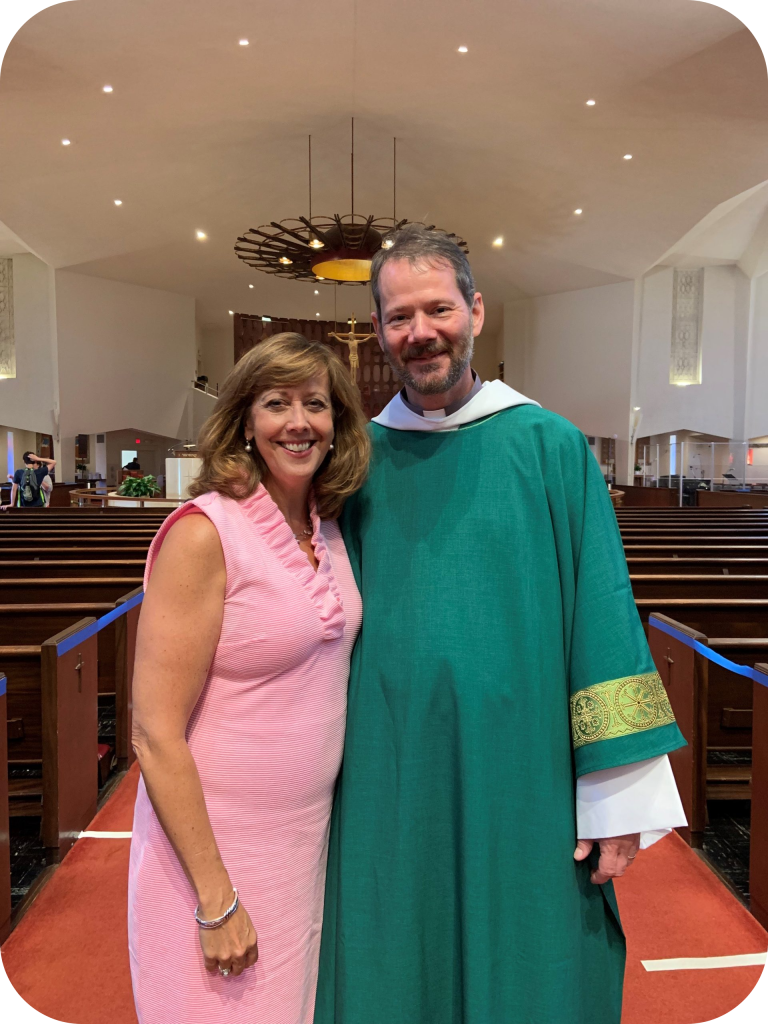
Two men preparing to become permanent deacons in the Archdiocese of Washington are volunteering in summer service projects with Catholic Charities, one teaching English as a second language and the other serving dinner and hosting trivia contests for those residing at Adam’s Place Shelter.
The two are among dozens of deacon candidates who have contributed to Catholic Charities programs over the years, as three summers of ministry work are required during the five-year deacon formation.
“Deacon candidates are a welcomed addition to our cadre of volunteers,” says Maggie O’Neill, director of Volunteer Engagement. “We appreciate their dedication. I love hearing from them that, through summer ministry, they have gained an appreciation for the life experiences of the people accessing services at Catholic Charities.”
Summer ministry is an important part of a deacon’s formation, especially for those who have no experience in social services, says Joe Petrizzo, one of nine men ordained permanent deacons in June. Petrizzo, now a deacon at St. John the Evangelist Parish in Silver Spring, volunteered with Catholic Charities for two summers. “It broadens your perspective,” he says.
In 2020, he spent the pandemic organizing food for distribution to the hundreds of people who lined up regularly at the Catholic Charities Center pantry in Silver Spring. Because of COVID-19, he worked behind the scenes with staff, whom he found to be welcoming, energetic and, above all, dedicated to clients.
A longtime social worker, Petrizzo once lived in community with the Franciscan Conventual Friars. Now the director of behavioral health at Holy Cross Hospital, he says summer ministry serving the vulnerable brought him back to his roots of being in service to others.
In 2019, he spent two nights a week at Catholic Charities’ New York Avenue Men’s Shelter giving out dinner, delivering mail and talking with the men. “Just listening to some of the guys and letting them tell their story and not judging them and being present. I really valued that.”
Not far from Capitol Hill, the shelter is in the shadow of power brokers and those of means. “And then you have the guys who have nothing or almost nothing who are living in the homeless shelter,” he says.
He encountered men with mental illness and substance abuse and a few who just didn’t want to be helped. But “they’re survivors,” he says of those he met. “You have to have skills to survive.”
The real value of service, he notes, is “just being able to see God in others.”